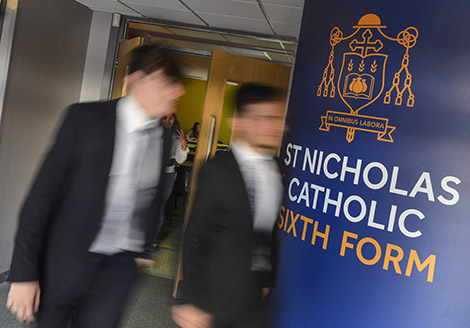At St Nicholas Catholic High School, safeguarding our students underpins everything we do and we are proud of the recognition that it has received for its safeguarding practices.
What is Safeguarding?
It can be difficult to accept, but every child can be hurt or put at risk of harm or abused. Government guidance says that safeguarding means:
- Protecting children from maltreatment
- Preventing impairment of children’s health or development
- Ensuring that children are growing up in circumstances consistent with the provision of safe and effective care
- Taking action to enable all children and young people to have the best outcome
And - “the action we take to promote the welfare of children and protect them from harm is everyone’s responsibility. Everyone who comes into contact with children and families has a role to play.”
Working Together to Safeguard Children (2018)
The School’s Child Protection and Safeguarding Policy can be found here .
Should you have any safeguarding concerns regarding a student at St Nicholas Catholic High School please contact the Safeguarding Team:
s.spencer@st-nicholas.cheshire.sch.uk
The School Governor linked to Child Protection and Safeguarding is Chris Mottram.
For contact details please refer to Mrs Vicky Hill v.hill@st-nicholas.cheshire.sch.uk Tel: 01606 706 000
Useful websites and resources
www.childnet.com
www.ceop.police.uk
Cheshire West and Chester Local Safeguarding Children’s Board: www.cheshirewestlscb.org.uk
Services for Children and Families in Cheshire West and Chester – The Local Offer
A new website that provides comprehensive local information, advice and support for families is now available: www.westcheshirelocaloffer.co.uk












